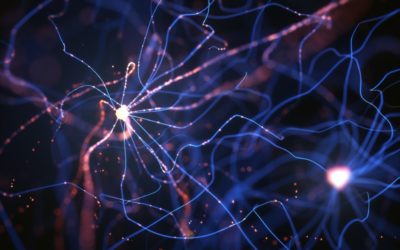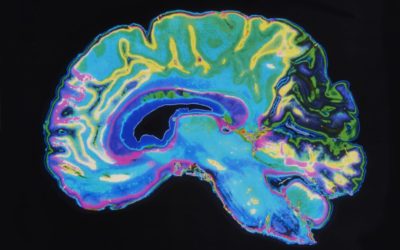Quick Hits
Daily brief research updates from the cognitive sciences

I presume you’re not just talking about stressed mothers stressing out their kids and/or grandchildren?
Not precisely. I’m talking about passing on stress activation patterns in DNA genetically.
Oh, that doesn’t sound good!
No, it isn’t good. We have known for quite a while that so-called epigenetic changes seem to be passed on to offspring.
What’s epigenetic?
All genes need to be activated and can be activated in different ways. Epigenetic markers are not a change in genes but how the existing genes are activated or not.
Ok, and this can be passed on?
Yes, the researchers from the University of Iowa, found out the precise mechanism. Clever things they are. But it is complicated. Basically instead of cleaning the hard drive, so to speak, and resetting genes, a protein released stops this “cleaning of the hard drive” and instead of the genes being reset the stress is passed on. Specifically in this case being present in unfertilised eggs.
And what changes?
In this case, Quote: “One of these newly silenced genes encodes the insulin receptor, which is central to metabolic changes with diabetes in humans, and which, when silenced, alters an animal’s physiology, metabolism, and stress resilience.”
Is this big news
Well, as I said, we already knew some of these things can be passed on. For example previous research has shown parents who have been though periods of starvation add an “eating” gene activation and this is passed on to children who are more likely to become obese. Read about that here.
Oh wow? So we should look after ourselves because the damage we do to yourselves can be passed on to our children.
Precisely!

Andy Habermacher
Andy is author of leading brains Review, Neuroleadership, and multiple other books. He has been intensively involved in writing and research into neuroleadership and is considered one of Europe’s leading experts. He is also a well-known public speaker speaking on the brain and human behaviour.
Andy is also a masters athlete (middle distance running) and competes regularly at international competitions (and holds a few national records in his age category).
Reference
Srijit Das, Sehee Min, Veena Prahlad.
Gene bookmarking by the heat shock transcription factor programs the insulin-like signaling pathway.
Molecular Cell, 2021
DOI: 10.1016/j.molcel.2021.09.022
More Quick Hits
Why Too Much Talent May Harm Performance
This may sound like a strange thing to say – but talent and team coordination are different things…
How Nutrition Can Increase Motivation – In the Brain
Fascinating study on how antioxidants (and therefore also nutrition) in the brain can increase motivation…
Mindfulness Intervention as Effective as Drugs in Anxiety Disorders
An important study showing how mindfulness is as effective as medication – without the side effects…
New Insights into How the Teenage Brain Develops
Teenagers’ brains go through substantial changes – and now we know more of some of these…
Screen Time Boosts Wellbeing in Teenagers!
Screen time is considered a modern technological evil – maybe not so for teenagers…
Taking Photographs of Slides Improves Memory of Presentations
Taking pictures has been shown to reduce memory – but this study shows the opposite…






